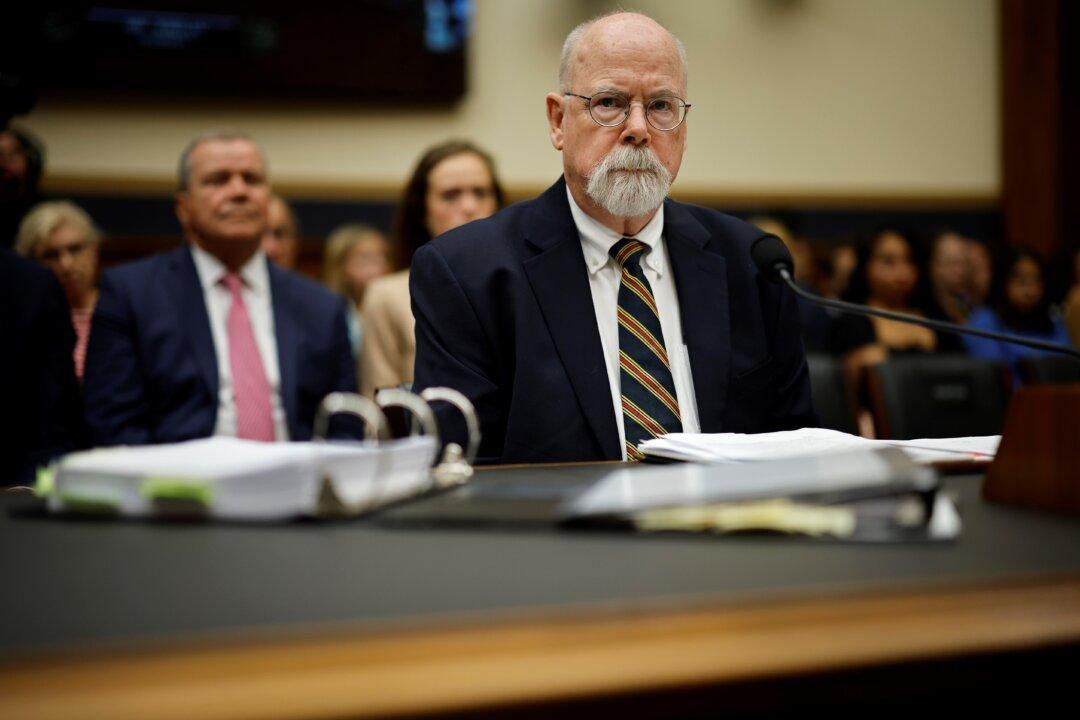The FBI shouldn’t have launched a full investigation into then-presidential candidate Donald Trump’s campaign based on unverified intelligence, special counsel John Durham said on June 21.
Within three days of receiving word from Australian officials in July 2016 that Trump campaign adviser George Papadopoulos said Trump’s team had received a suggestion from Russia that it could help release information damaging to Democrats, the FBI opted to open a full investigation, rather than take a smaller step.





